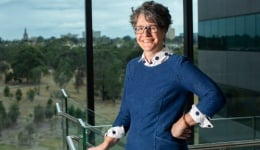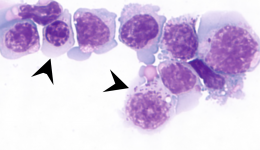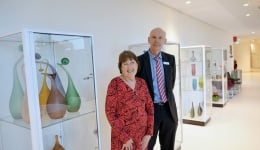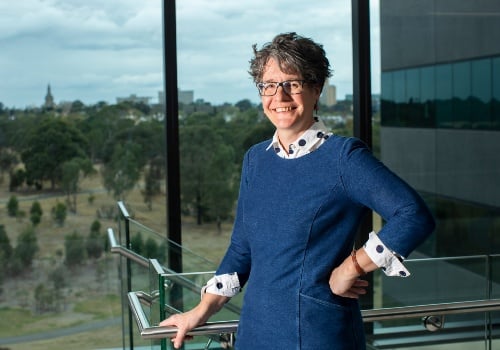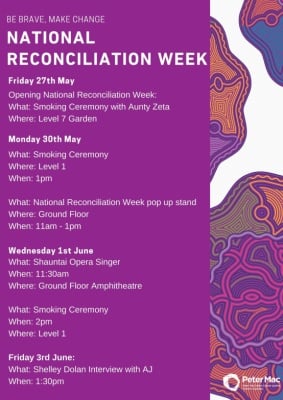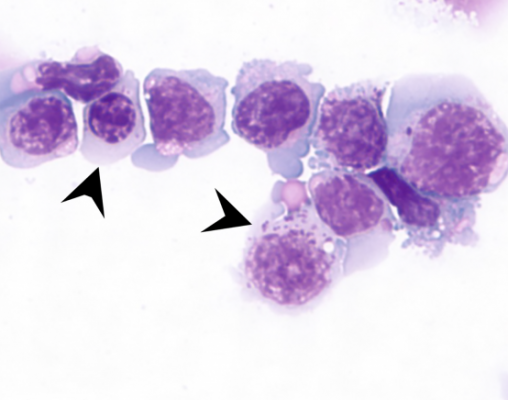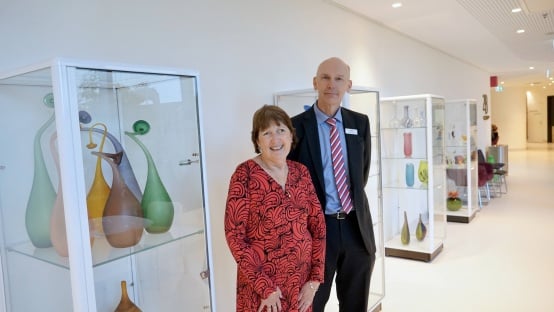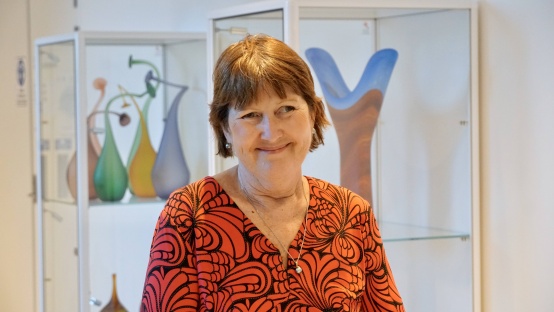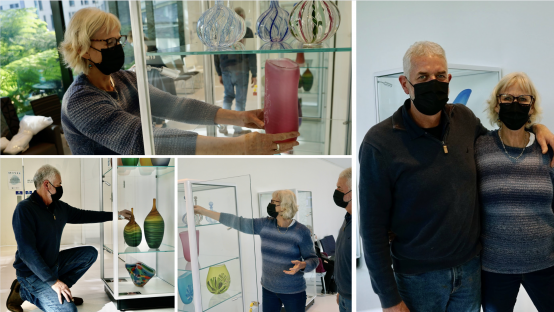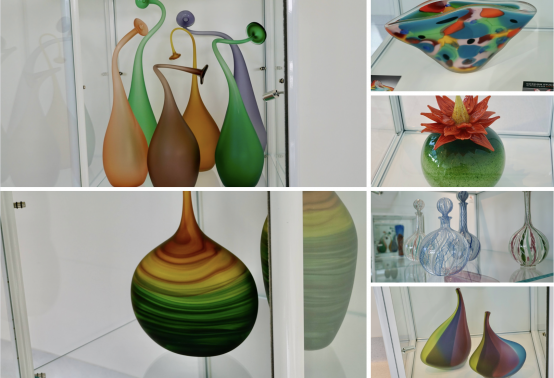Role: Senior Research Lead – Implementation Science. It's a dual appointment between Peter Mac and the VCCC Alliance.
Been at Peter Mac since: March 2022. However, I was here for a week and then I went back to the UK for a month, for my first post-lockdown family trip. So I've kind of really only been here for the last few weeks. I'm very, very new.
How would you describe implementation science for someone who's not familiar with the field?
I tend to describe implementation science or implementation research as the structured approach to getting evidence-based practice into routine clinical practice.
Anybody can implement something new, and that's great. But if we want to be looking at implementing more widely, and learning from our implementation experience, then we need some structures in place around it. So it's really about helping people with an implementation frame to support what it is that they're doing.
You can't really evaluate something if you just give it a little go. Whereas if you take the time and use those implementation frameworks and models that are available, then they can help you get your evidence into practice.
As a joint appointment at Peter Mac and the VCCC Alliance, I'm also thinking bigger picture. We don't just want great care in one place. We want great care across the whole of Victoria. So that's where my passion lies.
Does that mean by implementing in this more systematic way you can possibly take something that works at Peter Mac and look at how you adapt it to say a regional hospital in Bendigo or Ballarat, for example?
Absolutely, absolutely. And equally the other way around. If those regional hospitals are doing something excellent and have really succeeded in doing something, we can ask: "How have they managed to do that? What can we learn from that? And how can we look at implementing that in other places?"
We're launching our Implementation Science in Cancer program on May 30. From a big picture perspective, what is that seeking to achieve?
It's about raising the profile and people's awareness of what implementation science can offer for them. So how we can be working with clinical teams to help them with their implementation efforts.
Implementation research is a team effort. So it's very much about bringing the clinical and context expertise together with the implementation expertise, to then see evidence-based practice practiced more widely.
Sure, so you're not saying to people, you have to do a crash course in implementation science and learn all the models. You can supply that knowledge and then they can bring the context and you go forward from there?
Yes. And I have had the pleasure of working with all sorts of amazing clinicians et al., particularly over the last few years. We don't understand the exact detail of what goes on in every lab, but they've got all of that knowledge and that's why they're the experts in their fields. And I can work alongside them, and we can discuss what sort of research plan we might want to put in place.
What's your background been to this point in your career?
I have a very, very extensive clinical background, we won't say how many years. I practiced as a chartered physiotherapist internationally before this, but then I got very interested in how in clinical practice and managing services, we would have this evidence so we would know that something's the best way to do something, but it wouldn't necessarily happen. A PhD in implementation science soon followed.
I came out to Australia about five years ago, planning to stay for one year working with Australian Genomics and looking at the implementation of genomics in the Australian healthcare system. And clearly, I'm still here.
What is the specific role you'll be playing in the Implementation Science in Cancer program? Is it being that initial contact for people?
Yes, absolutely and we will be introducing an implementation science collaboration questionnaire soon. Obviously I won't be able to do everybody's implementation, but oftentimes, it's about talking with people, finding out what it is they want to know, what is it they want to be doing. So if I can act as that person for Peter Mac and the VCCC Alliance that would just be marvelous.
I think I'm so new to Peter Mac and the VCCC Alliance, I don't know who I don't know. I'll need to spend a lot of time really getting out there and meeting people. Clearly, I'm well aware of the high quality clinical work that goes on at Peter Mac and the VCCC Alliance, and I really want to be getting to know people on the ground who are delivering care.
And that's not just staff but also consumers. They are a key part of implementation. It's about looking quite widely at who the range of stakeholders may be.
How can consumers get involved in implementation science? What role do you see them playing?
Well they can play all sorts of different roles, it really depends on what it is that you're seeking to do. Sometimes it's starting off, and really understanding the experience that they are going through and spending the time to kind of go: "Oh, is it really like that? That's not quite the way I thought it was working."
And sometimes it's about having consumers in more of an advisory role. We could be setting up some clinical guidelines, for example. In situations like that, it's often very helpful to have a consumer on board, even if they don't understand the nitty gritty of some of the details. They can be very helpful at going: "Hang on a second, how is that actually going to work when the GP sees the patient?"
Or it might be that we're designing some implementation strategies we want to put in place. Consumers can be really helpful at coming in and going: "Hmmm, I'm not sure if that's going to work" or "Yeah, no, that sounds great" or "This might be more appealing if we framed it this way round". So a massive continuum of potential engagement with consumers.
What do you enjoy most about being an implementation scientist or researcher?
I think one of the things I really enjoy about the role is that I get to meet so many different people. I get to work across so many different projects and see such a range of fantastic clinical work that's going on. So if I had to choose one thing, I would say it's that opportunity to meet so many different people.
If I was then to sneak in a second one, I think it's I've been really, really lucky with the highly skilled clinicians and lab scientists that I've worked with. I come to a project with my implementation hat on and I'm usually thinking really differently to everybody else in the room. I quite enjoy bringing new things into the discussion, and looking at how we can progress what it is they're already doing.
What's something about implementation science that you wish people at Peter Mac knew and perhaps they don't?
The fact that it takes time and takes resources. I think sometimes people think things like implementation are something you can just sort of throw in there and it'll happen. Actually, you need to spend the time to get embedded and understand what's happening, and collect the data, and analyze the data, and look at what you're going to do with it. Testing it, putting it in place, evaluating it, changing it. It does take time.
Does that mean sometimes people don't maybe tell you early enough that they need your help?
There is that. And it's always great to be involved early on but I also don't mind coming in later on, because you can come in at all sorts of different places. I think it's more about setting expectations. There is no magic bullet, and we need to consider each case that we're looking at.
